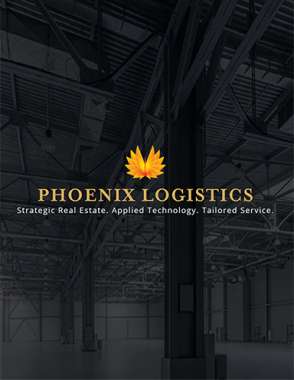Covid-19 Industrial Real Estate Industry Update

Few business sectors have experienced growth and success over the last two years, but industrial real estate has stood apart since the onset of COVID-19 in early 2020.
Industrial Real Estate
Few business sectors have experienced growth and success over the last two years, but industrial real estate has stood apart since the onset of COVID-19 in early 2020.
The pandemic spurred numerous trends which have continued to benefit industrial real estate owners, real estate investment trusts (REITs), developers, and other industry players.
Though most other commercial real estate sub-sectors struggled, industrial has steadily led the pack throughout the pandemic.
How Covid-19 Continues To Impact Industrial Real Estate
With only about 60% of the U.S. population vaccinated and new variants cropping up, COVID-19 issues will impact industrial real estate trends and decisions for the foreseeable future. Some of the pandemic-related trends in the industrial sector include:
- A warehouse capacity shortage. The pandemic revealed the convenience of shopping online to consumers, which has drawn out an eCommerce boom that initially began due to government lockdown recommendations and fears of viral exposure. However, as online sellers and omnichannel retailers strive to keep pace with new consumer buying trends, they need more fulfillment space. In addition, large orders from overseas have jammed up major ports, contributing to higher demand for storage space near those facilities. While the supply chain has finally begun to show signs of recovery, these issues will still take a long time to resolve fully.
- Supply chain restructuring. Logistics and procurement experts have implemented numerous strategies to improve the resilience of corporate supply chains. Renewed interest in reshoring has created a demand for viable manufacturing space on American soil as U.S. companies seek to shorten supply chains. Businesses have begun regionalizing inventory and production capabilities across multiple areas to avoid the risk of total shutdowns when one facility gets affected by a viral outbreak or another disaster. Government incentives for goods that were “Made in America” have further inspired interest in doing business in the United States.
- Demand outpacing supply. The industrial real estate sector experienced record-low vacancy at 4.3% in Q3 2021, and demand still far outpaces the delivery of new inventory. Meanwhile, disruptions in the supply chain for construction materials and labor shortages across industries have continued to hamper new development. As a result, the ongoing need for warehouses, fulfillment centers, distribution centers, factories, and other industrial space will undoubtedly drive industrial real estate demand for years to come.
- Sustainable buildings. The pandemic caused increased interest in sustainability. Businesses with robust sustainability programs outperformed competitors throughout the pandemic. Disruptions caused by COVID-19 have also spurred an increased focus on the next significant disruption: climate change. As real estate and supply chain stakeholders begin to grapple with the reality of climate change and how it will impact the business world in the future, interest in sustainable buildings will no doubt keep increasing. Some areas, such as New York City, have also implemented stringent carbon emission laws for real estate developers and owners that may slow the pace of new development.
- High asking rents. As long as capacity remains low, rents for industrial properties will keep climbing. In addition, urban areas and port-adjacent markets will most likely experience even higher rent growth. Overall, national industrial rents increased 7.1% year-over-year in Q3 2021, and there’s no reason right now to think they won’t continue climbing in 2022.
- Inflation protection. REITs and other big investors often pursue high-demand commercial real estate assets to protect themselves against inflation. Since regular rent increases usually get built into lease terms, owning in-demand properties helps owners to mitigate inflation risks. As long as industrial capacity remains low and demand remains high, expect investors to pursue industrial properties as a means to protect their portfolios.
About Phoenix Logistics
Strategic Real Estate. Applied Technology. Tailored Service. Creativity. Flexibility. These fundamentals reflect everything we do at Phoenix Logistics. We provide specialized support in locating and attaining the correct logistics solutions for every client we serve. Most logistic competitors work to win 3PL contracts, and then attempt to secure the real estate to support it. As an affiliate of giant industrial real estate firm Phoenix Investors, founded by Frank P. Crivello, we can quickly secure real estate solutions across its portfolio or leverage its market and financial strength to quickly source and acquire real estate to meet our client’s needs.
Article Topics
Phoenix Logistics News & Resources
4 Best Practices for Online Order Fulfillment In 2023 Is Industrial Real Estate Recession-Proof? 9 Tips for Offsetting Rising Parcel Rates Tips for Retaining Your Peak Season Temp Labor The Great Decoupling and What It Means for Industrial Real Estate How Does the Inflation Reduction Act Impact Industrial Real Estate? Not in My Backyard: Warehouse Edition More Phoenix LogisticsLatest in Warehouse|DC
Talking Supply Chain: Supply chain’s watchdog Ranking the World’s 10 Biggest Supply Chains The Top 10 Risks Facing Supply Chain Professionals Walmart’s Latest Service: Ultra Late-Night Delivery Dollar Tree’s Oklahoma Distribution Center Decimated by Tornado European Parliament Passes Law on Supply Chain Accountability Transforming Warehousing with AI: Five Key Reasons to Adopt Now More Warehouse|DC













